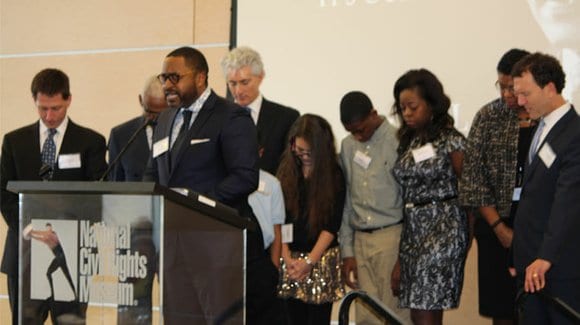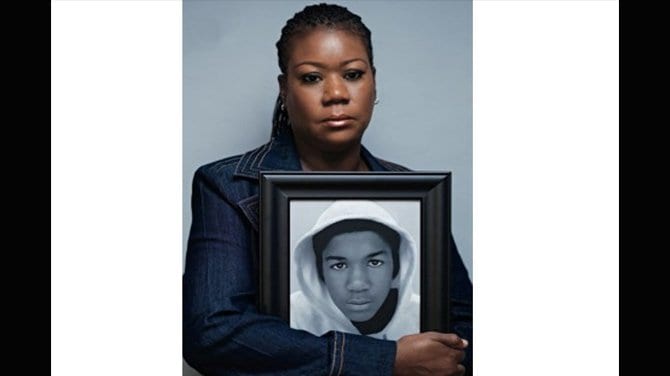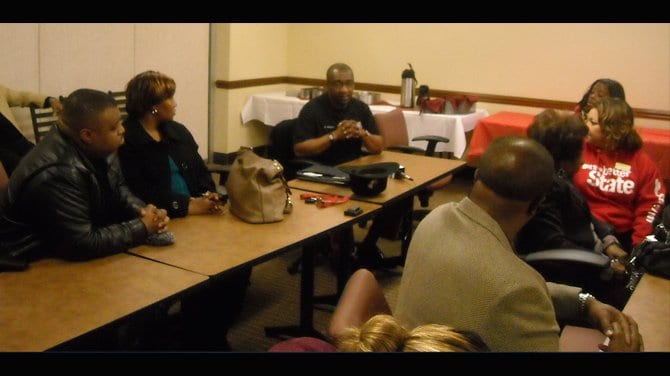‘Pretty Like Me, 1’ – It’s an app
By by Phreddy Wischusen NNPA News Service

Anyone who spends time with young children knows they have a love and an affinity for our devices — smartphones, tablets and computers. Long before most children learn to read, they know how to identify the appropriate charger for each device how to open apps, and so on.
Detroit native Dara Harper, author, playwright, and mom, has added app developer under her belt. The innovative Harper has merged her skill as a story teller with the creation of a new application. “Pretty like Me 1,” is the story of Nia, a young African American girl who learns to love her natural hair, and in turn herself. But “Pretty like Me,” is not a traditional storybook, it’s an app.
The app has three different modes: The most advanced children can read the story to themselves, parents can read the story to their children, and children can opt to have the app read aloud to them, similar to audiobooks. The story/text is accompanied by Harper’s whimsical animations/illustrations and gives children opportunities to interact with it, transforming caterpillars into butterflies and making the stars twinkle.
“I’m a storyteller, so whether it’s writing plays or writing books or developing storybook apps I like to tell stories,” says Harper. “(Developing apps) … is away for me to tell stories in a different medium. And I find a lot of value in that.”
For Harper, however, simply telling stories is not enough. She strives to use her stories to uplift and educate her audience in the long tradition of African griots, and for her craft to provide for her and her family financially.
Harper created Nia, whose name means purpose in Kiswahili, to inoculate children to the negative affects of growing up in world where there is so much pressure to look other than how they do naturally.
“I wanted to put the app highlighting natural hair, because I wanted her to celebrate her pride and what makes her beautiful, and sometimes even in the African American community there can be pressure on Black women (to) conform and wear (their) hair a certain way, that (they) should straighten it,” she says.
Rising rates of male anorexia indicate to the author that this pressure is growing in all segments of our society.
“When you’re watching television or you’re online all day and tuned to certain images and they’re flashing in front of your face constantly (and think to yourself) ‘I don’t look like that…’ and yet those people don’t even look like that,” Harper observes. “…I’ve been around celebrities up close and personal, and I can tell you: Flawless skin doesn’t exist like you think it does … There is such a thing as Photoshop … and I think that can send the wrong message to a lot of young men and women.”
When appearance anxiety is eased, Harper believes, people are freed up to focus their energy on other things, and with added self-confidence comes an enhanced ability to manifest their ambitions. Harper is living proof.
Many consider the arts and sciences to be opposites, but Harper, an award-winning playwright and filmmaker, taught herself how to code in order to produce her series of apps. The work was extremely challenging at first, she says, and required a lot of math, “but a very different kind of math than we were taught in high school.”
According to Harper, high school math teaches you how to solve a problem to find a single solution, but coding is like engineering, one starts with a desired solution and finds any of an infinity of ways to achieve it. “Everyone’s code looks different just like them,” Harper says. “Johnny’s code looks crazy because he’s crazy. Sally’s code is neat and organized because that’s her style. Brother Deon‘s code is cool and smooth, just like him.” But, she says, it all works.
The value in code diversity, says Harper, “is that you see there are so many different ways to arrive at the answer. Before you arrive at the answer, you define the question yourself.” By learning to code, Harper doesn’t have to pay someone to develop her apps and can make her art practice and her life financially sustainable.
“In order to be successful today a person has to have several avenues of how they can support themselves financially. It’s not even just the money you make, it’s how they earn that money.”
Harper says she would rather make $10,000 from 10 sources rather than 20,000 a month from one source.
“If all of your money is coming from one source, if something changes or something goes bad — whether it’s a pink slip or even if you’re a business owner and the climate changes — and all of a sudden your $20,000 a month shrinks to $3,000 and you don’t have anything else going for you, then that’s painful. But think about the person who makes a total of $10,000 a month from 10 different income sources. If one of those sources is compromised in some form or fashion… you still have $9,000 from the others. And while you still have those going, you have time to retool and figure out how to fi ll in the missing blank there.”
Harper works exclusively as an artist, building multiple revenue streams from sales of her novels, app sales and other media products. The confidence to become an artist/entrepreneur is what she has written into Nia’s story, so young girls and boys can grow up to make their own individual passions the way they sustain their lives.
A mother of a young child, Harper has branded her children’s line, Sea Shell Kids, because “I remember when I went to the beach as a child and I saw how different all the sea shells were. All sea shells are unique. I think each child is unique. I celebrate that uniqueness.”
(Dara Harper’s books and applications for children are available at www.seashellkids.com and her novels for adults can be found at www.darawrites.com.)
(Special to the NNPA from The Michigan Citizen.)
Making sense of police-community talk
In a seemingly increasing number of venues in various places in Memphis, discussions about improving police-community relations are popping up like new grass after winter.
Such was the case on Tuesday as the Whitehaven Kiwanis Club devoted its Dutch Treat Luncheon to the subject during a gathering at Methodist South Hospital. With Dr. Randolph Meade Walker, pastor of Castalia Baptist Church moderating, the session brought together police, educators and administrators, community volunteers, representatives from the county mayor’s office and others involved in different aspects of service to youth.
As is the case with such discussions, the bottom line gets down to what is to be done? What is next? Walker spoke to that point as the spirited exchange, which included Memphis Police Association President Mike Williams, moved to that inevitable juncture.
“I think we need more of this, a village powwow,” said Walker. “Everybody is doing a great job in their own individual cubby holes. But we need this thing to be a symphony so we can make music. We’re playing solos now and we’re not connecting with each other.
“It seems to me we all need to come together in a concerted effort so that they (youth) hear the same message at Whitehaven High School, at the YMCA, from the police, from the church and everywhere that they go.”
Getting to that “concerted effort” stage has been an elusive goal – a point acknowledged by many in the room. And while some there – and elsewhere – say the time for talk has waned and that it is time for action, there is evidence to suggest the quality of the talk is problematic.
At the Kiwanis Club session, there was an earnest attempt made to hear each other and to talk through differences.
For example: Dell Gill was adamant that too much police manpower is devoted to writing tickets. There is much better use for those officers, he said. Some others in the room didn’t see it quite that way.
“Shouldn’t people be held responsible,” asked Calvin Burton.
Police are not perfect, but “people don’t have respect for 4-way stop signs,” said Blanch Thomas. “We need to write tickets. People are not compliant. We need to set some standards.”
MPA’s Williams pushed the need to “stop letting the government dictate how we are going to operate in our communities.” He was critical of the way existing resources are being used and distributed.
Calling the Kroc Center in Midtown a beautiful place, he said Whitehaven, Frayser, Orange Mound and other areas rightly should have such a facility.
The Davis YMCA center should have been upgraded long ago, he said. With upgraded facilities, there is more of a chance to draw young people. And at that point, there must be programs that can benefit them, he said.
Yasmin McKinney of the Davis YMCA said it is making a difference, serving over 500 kids a week. The need, however, is great, she said, with it not unusual to encounter high school seniors who are reading, barely, at a third-grade level.




